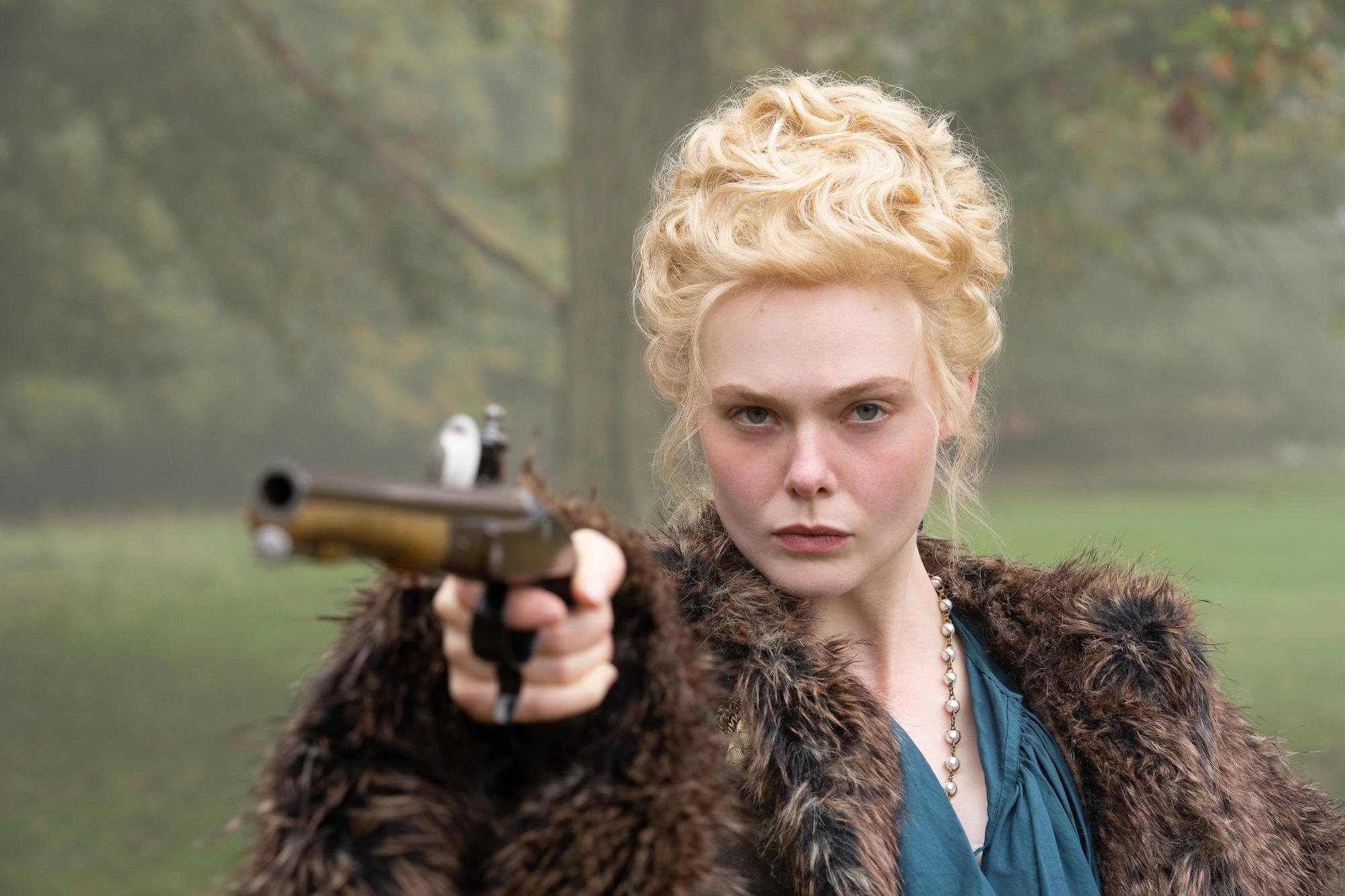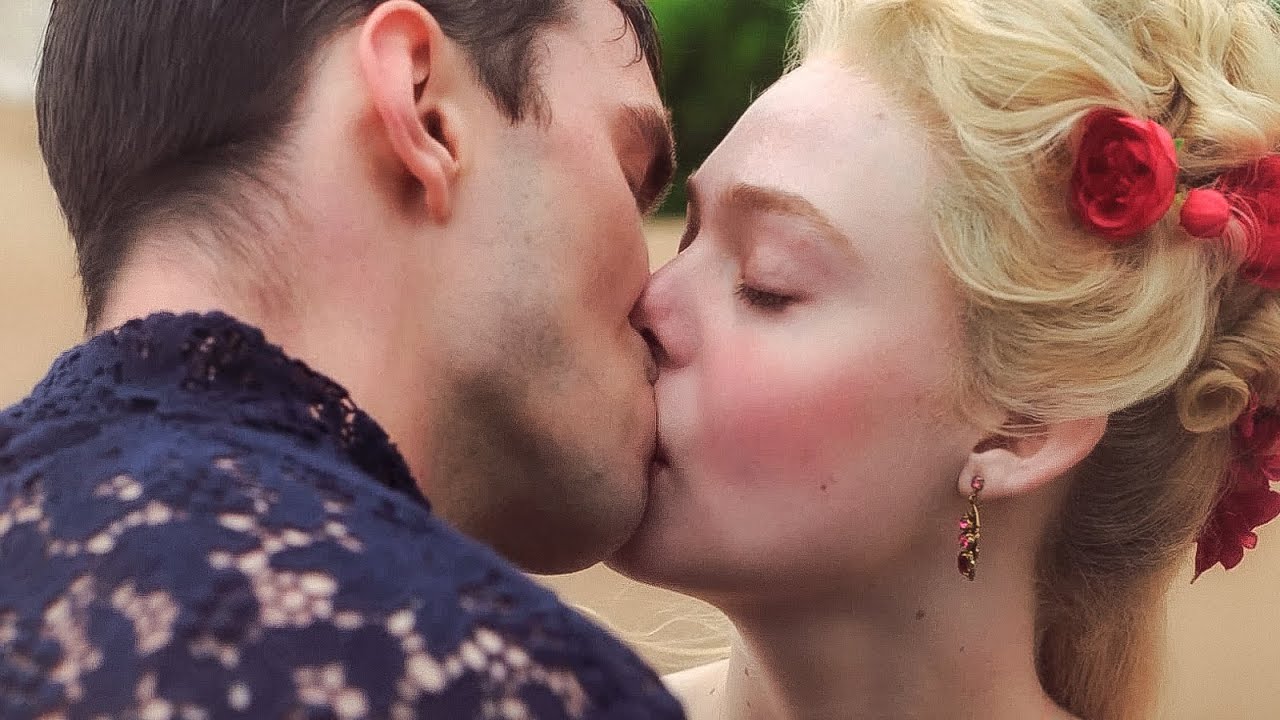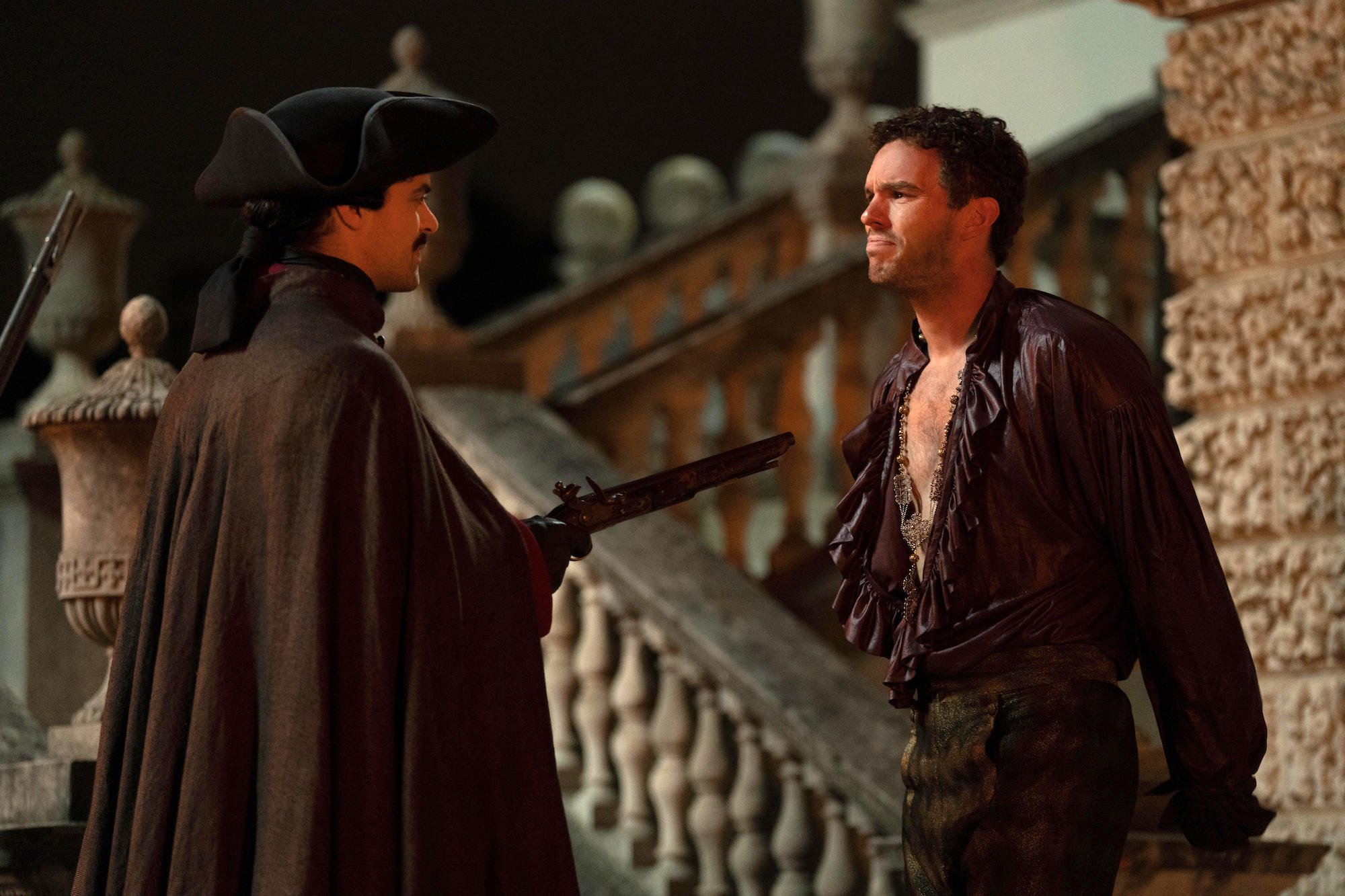The Great’s Tony McNamara on Making History Characters Feel Modern
May 23, 2023
Power. Sex. Identity. And comedy? Huzzah! Season 3 of The Great is finally streaming on Hulu and we’re heating up the borscht! If you haven’t seen the show, it’s about Catherine the Great’s (Elle Fanning) marriage to Peter III of Russia (Nicholas Hoult), and often departs from what’s written in the textbooks to get at the true nature of this remarkable woman who was Russia’s longest-reigning female ruler. I Zoomed with the show’s creator Tony McNamara to find out more about Season 3 (could there be a Season 4?) and the challenges of taking on a female figure from history in a television format.

Finding That Unique Comic Voice
If you saw the historical comedy, The Favourite (2018), about England’s troubled Queen Anne, you’re familiar with McNamara’s biting dark humor and wicked social commentary. He wrote the screenplay for The Favourite with Deborah Davis (Marie Antoinette), for which they both received an Oscar nomination for Best Original Screenplay.
Keeping with the dark humor, The Great is also wickedly smart – and when it’s not making you laugh, it’s delving into the dark side of the female experience. Case in point: One of the best dialogue exchanges in the series is between Catherine and her maid Marial (Phoebe Fox):
Marial: How was your day?
Catherine: I avoided rape.
Marial: Me too.
Catherine: Good. But if they come up with anything other than buttons, we’re all doomed.
The exchange is bitterly funny because we know these two women are experienced at protecting themselves in these types of unfortunate situations and we can laugh at their dark point of view. But it gets at the truth of what many women have experienced over the centuries while also playing on the viewer’s mind as they consider the consequences of the invention of zippers, Velcro and – the horror! – elastic. While things have changed a lot for women since the 1700s, a quick glance at the current headlines shows they haven’t changed all that much. This is just one of the ways Tony McNamara makes the show au currant while blending comedy and satire in a seamless and engaging way.
Believe it or not, McNamara says the comedy in Season 3 is even darker than the first two seasons. “It's more of an emotional season than I think we've had. It asks a lot more of the actors and has some big moments in it,” he says. Russia is going through some things, apparently.
Catherine the Great’s Star Power – Then and Now
I asked McNamara what initially attracted him to Catherine the Great as a subject to explore on stage (the TV show is based on his 2008 stage play) and then for television.
“I think what drew me to her,” says McNamara, “was almost my ignorance, because I didn't know much about her except the terrible story about the horse [Catherine’s opponents accused her of having intimate relations with an equine]. I thought, well, that's very contemporary as well, you know, that someone's life is reduced to a salacious headline. And all the things they actually achieved were swept away. She was an incredibly complex, interesting human being who – when most of us can't pay our rent – was overthrowing a country that wasn't her own and running it for 30 years. That’s what drew me to her.”


The Power of Love
It's perhaps not surprising that the two main actors in the show, Hoult and Fanning, have terrific chemistry together considering both have similar backgrounds: both were child actors and grew up on screen. But their chemistry was so terrific, it even took McNamara by surprise. When they started filming the first season, his trajectory for the show had to change.
“Once I got on set with Nick and Elle, I just loved them so much and I loved the chemistry and the three of us just hit it off so well. I knew at some point she takes over and kills him. But after five or six episodes, I went, ‘Oh, there's so much more here!’ Gretel [Vella], one of the writers and I, we just watched them one day and, and we just went, ‘He's in love with her – he loves her!’ And so that spanned the first season. That was one of the biggest decisions we made because we'd never planned that,” says McNamara.
Like many royal marriages from history, this one was doomed from the start – loving or not. But McNamara says looking at their marriage from that perspective presented a fascinating challenge. “I thought, it’ll be interesting to see two people who loved each other try to make a relationship work that can't actually work. In the first three seasons, he defines her in a way – as any villain does. And so, it then became like, ‘What is season four like, what is she now?’ She's free but damaged and all that kind of stuff.”
I asked if he could confirm a Season 4. Sheepishly, he said, “Well, I hope so. There isn't one yet, but of course I'm thinking about it.” I’m sure many of us relate to his overactive writer’s brain – always wondering where our protagonist is going next.

Resisting Masculine Tropes
Because young Catherine becomes the ruler of Russia at a time when women were valued only for their ability to produce heirs and ambitious women were ridiculed, I asked McNamara if he felt pressure to make the character more masculine to make it more believable that she would inspire confidence. He says they totally resisted that idea.
“At one point, Costume pitched that she would wear a men’s military uniform when she went to the front lines, and Elle and I were like, ‘No – she didn’t do that. She didn’t feel the need to become more masculine or put on masculine tropes.’ It's not that we tried to avoid that masculine-feminine thing. I think it always came down to who she was as a human being – what drives her as a human being.”
Navigating a Complicated Story
I asked McNamara if he ever gets lost when trying to map out his story (each season is 10 hours long!) and if he has any tips or tricks that help get him back on track.
“I have a piece of paper with six basic questions that I ask myself over and over. I go back to basics, like, ‘What do the characters want?’ and, ‘What is the ultimate 10-hour story of that character?’ and whether that piece I’m working on is telling that story or not,” he says.
He says the character motivation should remain consistent throughout the entire season.
Big Ideas Get McNamara’s Attention
When McNamara is hiring for his writer’s room, it’s typical for him to read a lot of spec scripts. He shared what he looks for.
“I look for character-driven comedy. I look for people who have a big idea. Who take a big swing and have something to say – and that’s what I like in the room,” he says.
He adds that the writer needs to show their personality in the script, and communicate, “I'm funny and I don't mind putting it out there.”
Put Your Historical Character in a Modern Setting
I asked McNamara what advice he has for anyone writing historical comedy. He says that once you’ve determined what the protagonist wants, then think about how they would pursue their goal in a modern setting.
“A lot of what we did in Season 1 and Season 2 was to say, ‘What if Catherine was in Chicago and she was a 24-year-old woman who just married an idiot and now she had to decide whether to kill him?’ So sometimes we would just go, ‘Okay, what would she do if she was in a contemporary setting?’ We’d think about her as a person now and then come back to our person [from history]. We don't do that anymore because we just know the character so well. But we did do that to make sure she didn't feel too unrelatable to the present.”
Season 3 of The Great is currently streaming on Hulu.
Written by: Shanee Edwards
Shanee Edwards is an L.A.-based screenwriter, journalist and novelist who recently won The Next MacGyver television writing competition to create a TV show about a female engineer and was honored to be mentored by actress/producers America Ferrera. Shanee's first novel, Ada Lovelace: The Countess Who Dreamed in Numbers was published by Conrad Press in 2019. Currently, she is working on a biopic of controversial nurse Florence Nightingale. Shanee’s ultimate goal is to tell stories about strong, spirited women whose passion, humor and courage inspire us all.



